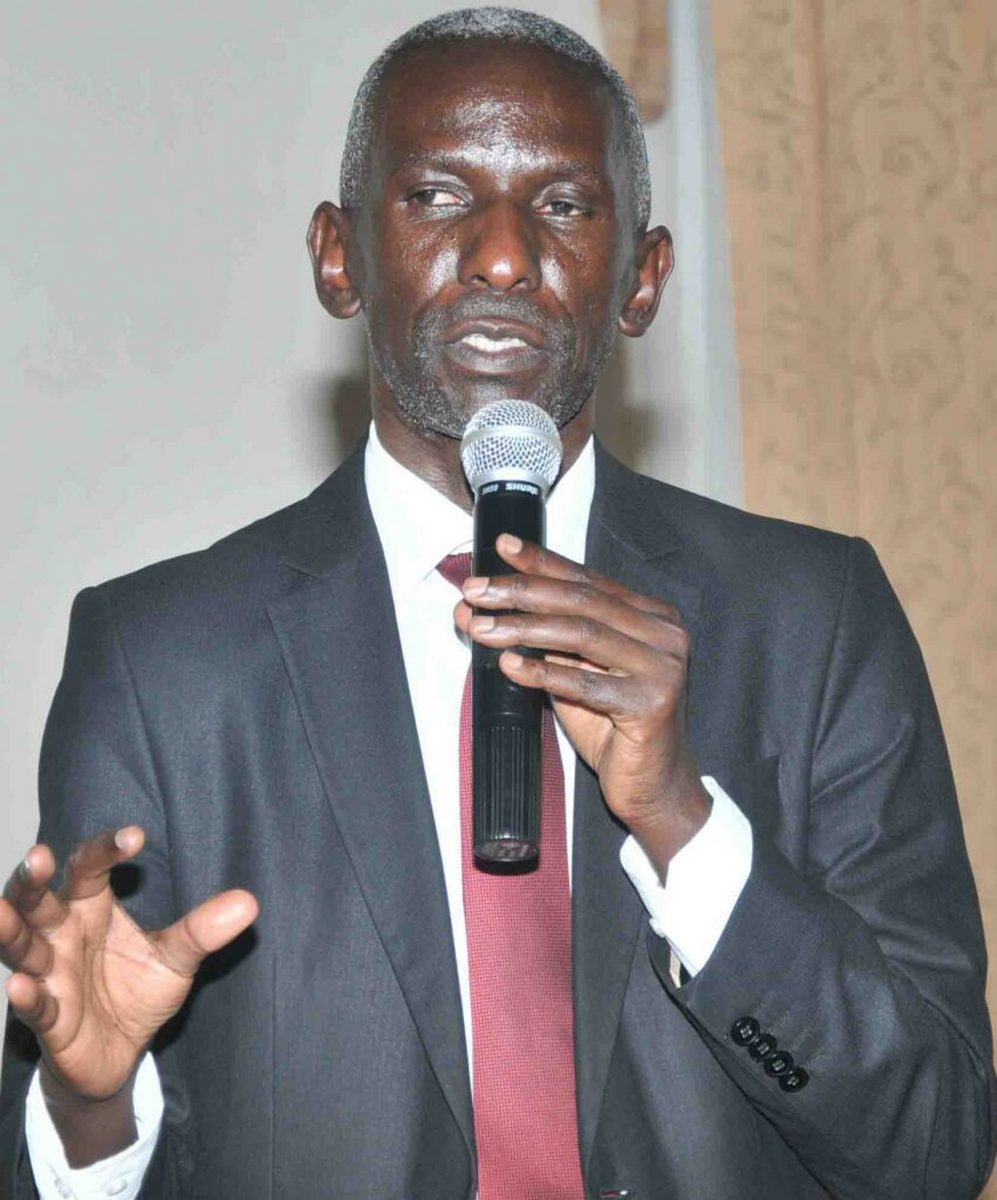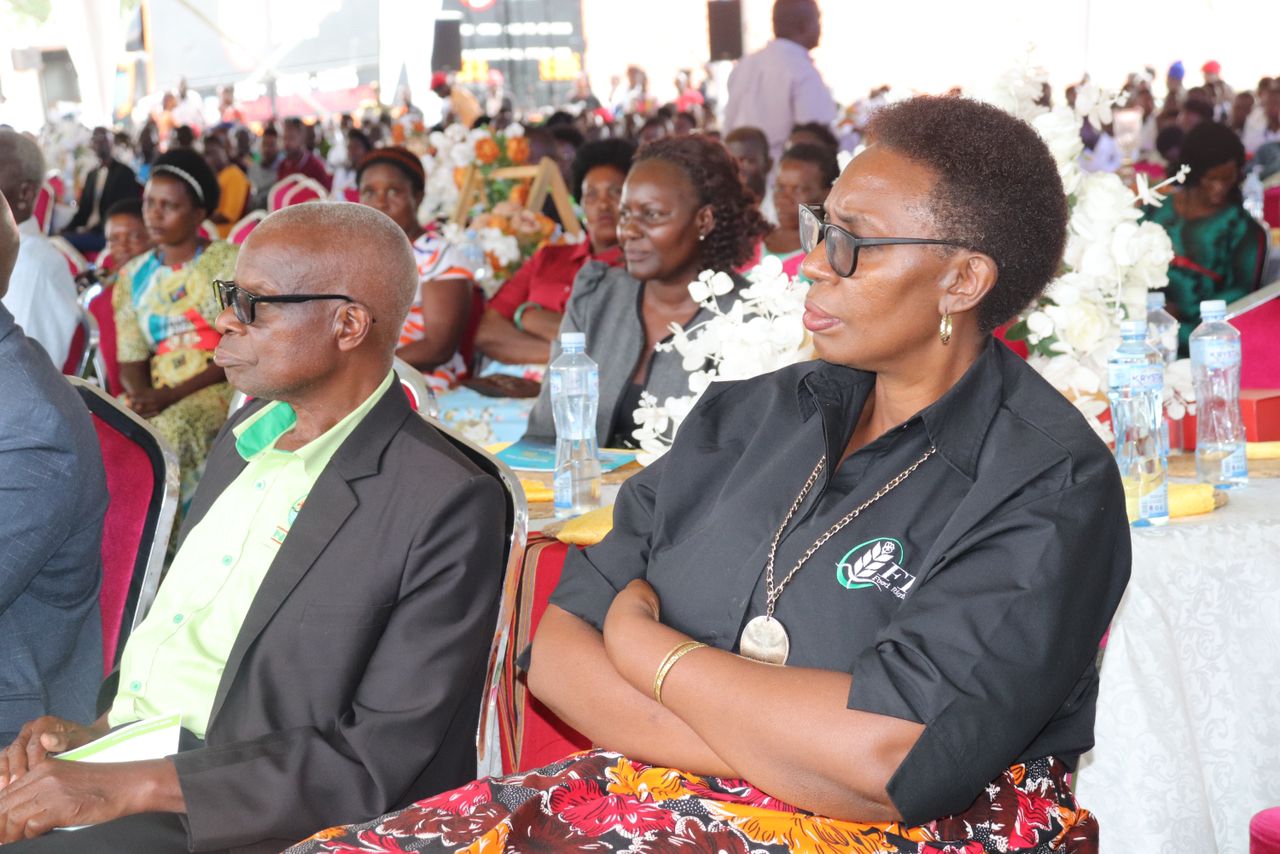
MUKONO – Dr. Yona Baguma, the Director General (DG) of the National Agricultural Research Organization (NARO) a government agency mandated to undertake research in all aspects of agriculture has decried the low funding for the sector.
Dr. Baguma says that if NARO is given a little more than it currently gets in annual funding, the sector would be able to strategically boost food and animal feed security.
“According to our strategic plan, we desire to have a funding level of UGX300 billion annually…. We are now at a funding level of UGX 166 billion. We are having a gap of UGX 144 billion,” Dr. Buguma said at the World Food Day events held in Kituza, Mukono District.
“We believe if we are given those resources, we should be able to continue generating technology and innovations, to contribute to improved agriculture in this country and set up an exhibition centre and be able to set up a natural genetic biodiversity conservation facility to save the bioresources that we have in the country,” he added.
He said that despite funding gaps, the NARO has been able to release new certified varieties to help boost food security in the country.
“NARO has been able to come up with livestock technologies, ranging from drought tolerant high yielding pastures, that are highly nutritious, developed and tick vaccines. NAR has also been able to develop and promote 45 widely adopted stress resistant based varieties, including the most popular now the Bazooka maize variety,” he said.
Agnes Kirabo, a seasoned Food and Agriculture policy analyst and the Executive Director for the Food Rights Alliance urged the government to allocate more money to NARO to help bolster their research projects.
“The UGX 300 billion required by NARO is very little money compared to the nature of work they do,” she said adding that research projects conducted by NARO have the potential to shield the country from hunger.
Kirabo also urged the government to invest in water harvesting and the construction of dams, especially for drought-prone areas.

On his part, the Minister of Agriculture, Animal Industry and Fisheries Frank Tumwebaze asked farmers to embrace technology to increase food production.
Tumwebaze said there are more agro-linked factories and markets emerging in Uganda which demand farmers to produce more and supply them because the market is ready.
He advised NARO to engage more and disseminate information about the work they are doing.
“We need to form synergies on making our activities known”.
He said his ministry is putting much emphasis on agricultural mechanization and investing in precision farming methodologies and irrigation technologies.
We also have been investing through a number of interventions like NAADS and small-scale micro-irrigation facilities. And we believe with these expos that people can know what to do. The farm inputs are here [and] they are affordable. We should have no reason to depend on rain-fed agriculture,” the Minister added.
Jan Sadek, Head of the Delegation of the European Union to Uganda said Uganda with its fertile soils and favorable climate is an agricultural treasure, boasting a variety of crops that graze the tables of many around the globe.
“The European Union stands shoulder to shoulder with Uganda on this endeavor, and our partnership is founded on a shared vision of a world where no one goes to bed hungry,” Mr. Sadek said.
“For the main agricultural export honor coffee, the EU works together with the government research institutes and private sector in a wide range of initiatives,” he added.
He said the EU considers value chains as the arteries that connect the farmer’s work with the consumers when optimized value chains can empower local economies, provide livelihoods, and guarantee food access for communities worldwide.
“So throughout the years, the EU has therefore invested in value chains related to aquaculture, sustainable meat industry and horticulture. And we believe that these investments adding up to more than 30 million euro have to be accompanied by efforts to comply with market standards, access to finance and technology transfer, which are all addressed in different EU funded interventions”.





